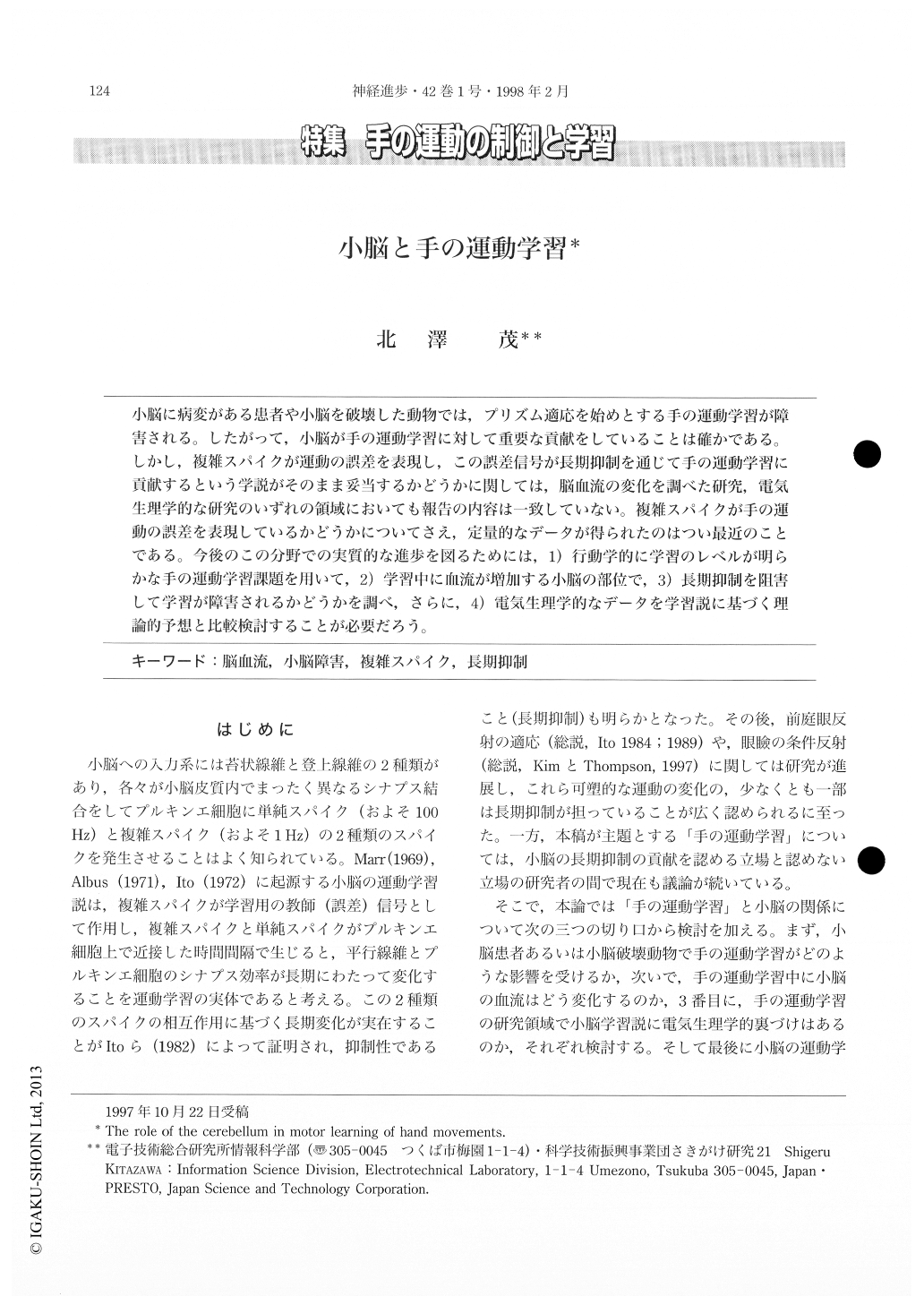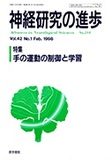Japanese
English
- 有料閲覧
- Abstract 文献概要
- 1ページ目 Look Inside
小脳に病変がある患者や小脳を破壊した動物では,プリズム適応を始めとする手の運動学習が障害される。したがって,小脳が手の運動学習に対して重要な貢献をしていることは確かである。しかし,複雑スパイクが運動の誤差を表現し,この誤差信号が長期抑制を通じて手の運動学習に貢献するという学説がそのまま妥当するかどうかに関しては,脳血流の変化を調べた研究,電気生理学的な研究のいずれの領域においても報告の内容は一致していない。複雑スパイクが手の運動の誤差を表現しているかどうかについてさえ,定量的なデータが得られたのはつい最近のことである。今後のこの分野での実質的な進歩を図るためには,1)行動学的に学習のレベルが明らかな手の運動学習課題を用いて,2)学習中に血流が増加する小脳の部位で,3)長期抑制を阻害して学習が障害されるかどうかを調べ,さらに,4)電気生理学的なデータを学習説に基づく理論的予想と比較検討することが必要だろう。
Patients or animals with lesions in the cerebellum reportedly lose their ability to improve arm and hand movements suggesting that the cerebellum is involved in the motor learning of hand movements. It is unclear, however, precisely how the cerebellum contributes to the learning: studies exist that both support and refute the assumption that the learning is related to long-term depression (LTD), a common supposition of most theories of motor learning in the cerebellum.

Copyright © 1998, Igaku-Shoin Ltd. All rights reserved.


